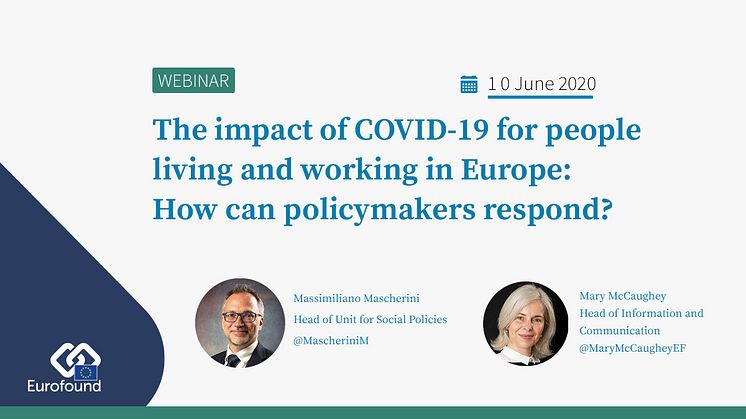
News -
Living and working in Europe: A compendium of life before the Coronavirus
The 2019 Living and working in Europe yearbook provides a snapshot of life and work in Europe before the onset of the Coronavirus (COVID-19). This detailed report, the latest in an annual series, is in some respects an economic epitaph to the Europe that was – although it also details the fault lines in Europe's economic and social progress, some of which are likely to become increasingly in focus under the strain of the pandemic which currently defines our lives.
The report looks at four key areas: employment and labour markets, working conditions, quality of life, and possible developments in the foreseeable future. It notes that employment reached a record high in 2019 - 73.9% among 20-64 year olds. Likewise, unemployment dropped to a record low of 6.2% at the end of 2019, and the vital overall process of upward convergence in employment in the EU had continued. However, the report also notes that southern European countries, already characterised by weak labour markets, lost ground. This is an issue that will become even more crucial in the months ahead.
The report also documents the diverging impacts of globalisation, digitalisation and new forms of employment on working conditions. From a broader European standpoint, there had been convergence in all of Eurofound's conceptual dimensions of working conditions over several years. However, there has been a deterioration in some sub-dimensions in several Member States, these included job security, career prospects and employment status. This was partly driven by the increased prevalence of non-standard employment. The economic impacts of COVID-19 will put the resilience of these contractual arrangements to the test.
Living and working in Europe also pays particular attention to the issue of trust in institutions in Europe. In most respects this was on an upward trajectory prior to COVID-19, and the gradual building of trust in several Member States since the years of financial crisis and Great Recession has been cast asunder in a very short period of time in early 2020. Eurofound's research has consistently shown that people’s perception of the quality of public services is the most powerful determinant of their trust in national institutions. In some respects, the report indicates how trust in Europe can be built once more.
Speaking about the new publication, Juan Menéndez-Valdés, Eurofound Executive Director, said "Living and working in Europe can be read in a number of ways. In one respect it is perhaps a requiem for a Europe that is not currently recognisable, one of upward convergence and record-low unemployment. However, it can also be seen as an outline for what can be achieved again, pinpointing the underlying issues that need to be addressed to put Europe on solid footing in the future."
Read more:
Read further:
- Living, working and COVID-19: First findings – April 2020
- Living, working and COVID-19: Data
- Topic page: Trust
- Forthcoming publication: Living, working and COVID-19 - Overview report
Join the discussion:




